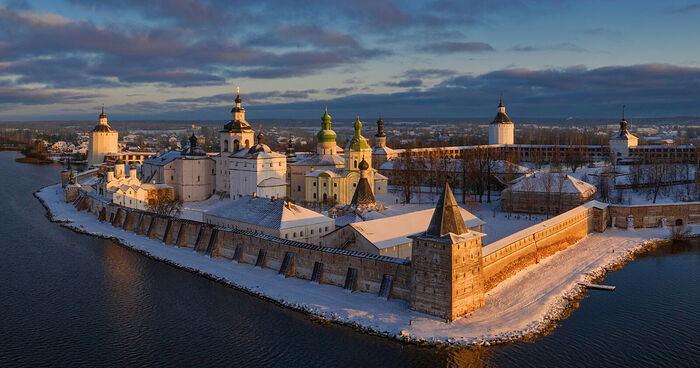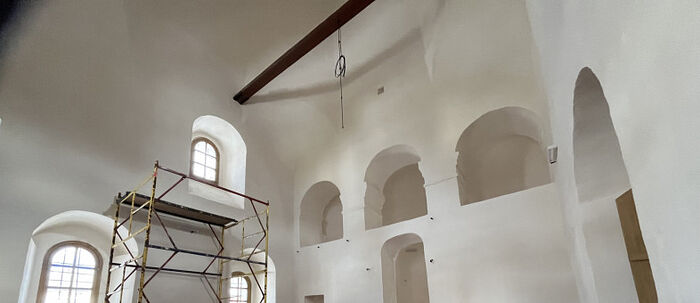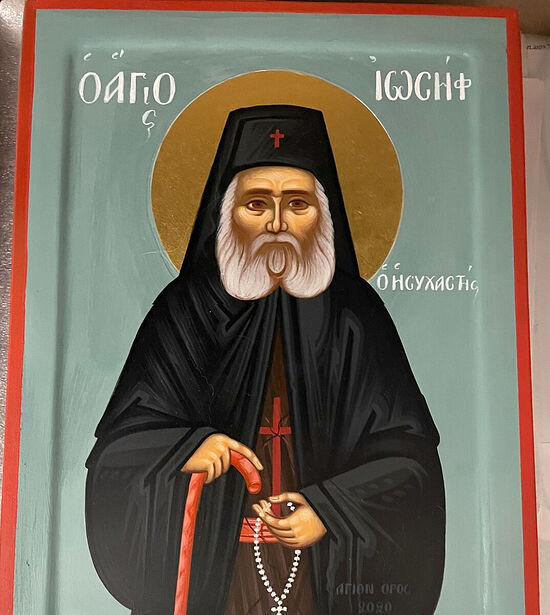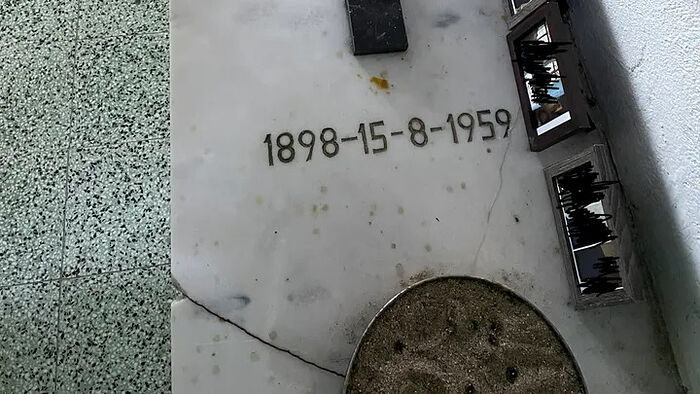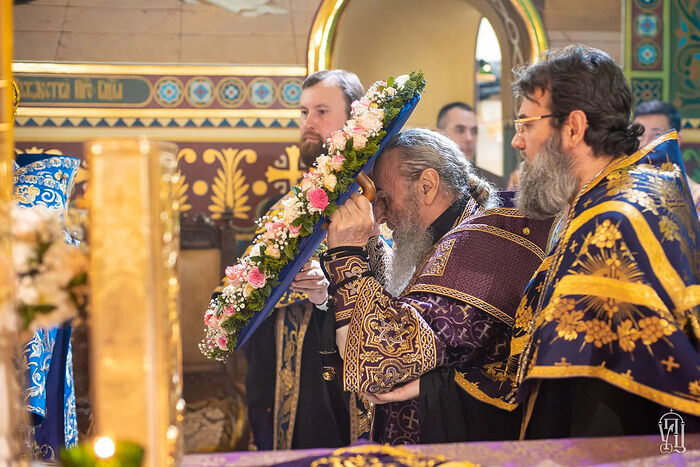ROME – In a new document published Monday, the Vatican presented a “seamless garment” approach to human dignity, uniting Pope Francis’s progressive social agenda with the traditional moral and ethical concerns of his predecessors.
Closely associated with the late Cardinal Joseph Bernardin of Chicago, the “seamless garment” approach to life issues in the Church consists of a holistic reverence for human life and dignity in all cases and situations throughout the world.
Monday’s new Declaration Dignitas Infinita on Human Dignity from the Dicastery for the Doctrine of the Faith (DDF) presented the consistent life ethic of this seamless garment, offering a clear definition of human dignity as the Church sees it and stressing the need to uphold it from conception to natural death.
It touches on issues such as war, poverty, migration, and the abuse crisis, stressing the need to protect and uphold human dignity in all of these circumstances, and it also takes a critical edge on topics such as abortion, surrogacy, gender theory and sex change, saying they disregard humanity’s natural God-given dignity.
Notably, however, the Declaration, while broadly condemning sex change, did not specifically touch on sex changes for minors, despite growing global debate of the controversial issue.
The document, which has been in the works for five years and the final version of which was approved by Pope Francis last month, quotes not only the current pope, but also his predecessors Popes John Paul II and Benedict XVI at length, weaving together their social and moral agendas.
Throughout Francis’s 11-year papacy, he has often been seen as being at odds with his predecessors’ more conservative approach to moral issues such as abortion and homosexuality, at times appearing to downplay the pro-life movement while repeatedly insisting on the need to be more welcoming of LGBTQ individuals.
Divided into four sections, with the final section dedicated to an array of problematic situations in which the Declaration says human dignity is not being recognized, the document outlines developments the Church’s anthropological view of human dignity and repeatedly praises the 1948 United Nations Universal Declaration on Human Rights.
It stressed the ontological nature of human dignity, saying this dignity “belongs to the person as such simply because he or she exists and is willed, created, and loved by God,” and does not depend on external factors, meaning it can never be taken away.
“Dignity is not something granted to the person by others based on their gifts or qualities, such that it could be withdrawn…it is prior to any recognition, and it cannot be lost. All human beings possess this same intrinsic dignity, regardless of whether or not they can express it in a suitable manner,” the DDF Declaration said.
Dignity is not something granted to the person by others based on their gifts or qualities, such that it could be withdrawn…it is prior to any recognition, and it cannot be lost.
It highlighted the belief that human beings are created in the image of God as the foundation of the “inseparable unity of body and soul” in the church’s view of human dignity.
However, the document also noted that human beings enjoy full freedom, saying “the choice to express that dignity and manifest it to the full or to obscure it depends on each person’s free and responsible decision.”
Quoting Pope Benedict XVI, the Declaration warned that without religion, human dignity risks falling prey “to distortions” or being “manipulated by ideology, or applied in a partial way that fails to take full account of the dignity of the human person.”
“Such misuse of reason, after all, was what gave rise to the slave trade in the first place and to many other social evils, not least the totalitarian ideologies of the twentieth century,” it said.
Highlighting what it said were “misunderstandings” of the concept of human dignity and its meaning, the Declaration pointed to the push for “personal dignity” over “human dignity,” in which the rights of the person are prioritized over the rights of humanity as a whole, putting some, such as unborn children and the terminally ill, at risk.
“Only by recognizing an intrinsic and inalienable dignity in every human being can we guarantee a secure and inviolable foundation for that quality. Without any ontological grounding, the recognition of human dignity would vacillate at the mercy of varying and arbitrary judgments.”
Human dignity, it said, has also at times been misused “to justify an arbitrary proliferation of new rights, many of which are at odds with those originally defined and often are set in opposition to the fundamental right to life.”
Dignity is based on human nature, not “individual arbitrariness or social recognition,” the document said, saying that without such an objective basis, “the concept of dignity becomes de facto subject to the most diverse forms of arbitrariness and power interests.”
The document also stressed the communal nature of human dignity, saying it implies a concern for the dignity of others, and therefore, a responsibility toward others and to the community.
While underlining the importance of the right to religious freedom, the Declaration also applauded increased efforts to educate on the dangers of racism, slavery, and the marginalization of women, children, the sick, and people with disabilities.
In a section outlining what it said were several “grave violations of human dignity” in the modern social context, the Declaration ticked off issues such as poverty, war, migration, human trafficking, euthanasia and assisted suicide, and violence in the digital sphere as areas where dignity is at risk.
Also mentioned were topics such as sexual abuse, violence against women, abortion, surrogacy, the marginalization of people with disabilities, gender theory and sex change.
On the topic of sexual abuse, the Declaration said it “leaves deep scars in the hearts of those who suffer it” and is widespread throughout society.
“It also affects the Church and represents a serious obstacle to her mission,” it said, saying, “from this stems the Church’s ceaseless efforts to put an end to all kinds of abuse, starting from within.”
The Declaration also condemned violence against women as “a global scandal that is gaining increasing recognition.”
It lamented that calls for the equal dignity of women often end in words, while “the inequalities between women and men in some countries remain very serious,” even in developed and democratic societies.
Quoting Pope John Paul II, the document said there is “an urgent need to achieve real equality in every area: equal pay for equal work, protection for working mothers, fairness in career advancements, equality of spouses with regard to family rights and the recognition of everything that is part of the rights and duties of citizens in a democratic State.”
“Inequalities in these areas are also various forms of violence,” it said, and also condemned the practice or polygamy and of “coercive abortions, which affect both mother and child, often to satisfy the selfishness of males.”
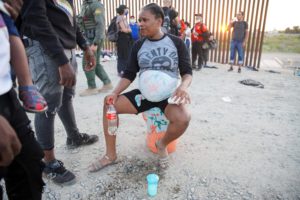
A pregnant migrant near Yuma, Ariz., seeks asylum April 30, 2022. (CNS photo/Katie McTiernan, Reuters)
It also condemned the troubling trend of femicide, a key issue in Italy that makes headlines annually, often with end of the year death count on how many women were murdered in the previous year.
The Declaration also condemned abortion as “the deliberate and direct killing, by whatever means it is carried out, of a human being in the initial phase of his or her existence, extending from conception to birth,” calling unborn children “the most defenseless and innocent among us.”
It also took aim at the practice of surrogacy, which was condemned by Pope Francis during his speech to the diplomatic corps accredited to the Holy See in January, and which the Declaration said treats “the immensely worthy child” as a “mere object.”
Quoting Pope Francis’s remarks to diplomats in January, the document said a mother’s womb “cannot be suppressed or turned into an object of trafficking,” calling surrogate motherhood “deplorable” and a “grave violation of the dignity of the woman and the child, based on the exploitation of situations of the mother’s material needs.”
Because of their unalienable dignity, “the child has the right to have a fully human (and not artificially induced) origin and to receive the gift of a life that manifests both the dignity of the giver and that of the receiver,” the document said.
Surrogacy also violates the dignity of the woman, “whether she is coerced into it or chooses to subject herself to it freely,” as she is detached from the child growing inside of her and thus becomes “a mere means subservient to the arbitrary gain or desire of others.”
“This contrasts in every way with the fundamental dignity of every human being and with each person’s right to be recognized always individually and never as an instrument for another,” it said.
In Italy, the document’s treatment of surrogate motherhood – known here as utero in affitto, or “uterus for rent” – is likely to have special resonance. A 2004 law already banned surrogacy in Italy itself, and a 2017 decision of Italy’s Constitutional Court upholding that ban said the practice “offends the dignity of women and deeply undermines human relations in an intolerable way.”
Now, the current conservative government under Prime Minister Giorgi Meloni is also seeking to make it illegal for Italians to utilize a surrogate mother abroad, with prison terms of up to three years and fines of up to $1.5 million. The bill was adopted by the lower house of the Italian parliament in July 2023, and is currently before the Justice Commission of the Italian Senate.
Some observers expect the government to try to push the measure through ahead of European elections set for June, given that most polls show solid majorities of Italians opposed to surrogate motherhood, especially when money is involved.
The proposed law, however, has drawn fierce opposition from groups such as Famiglie Arcobaleno, or “Rainbow Families,” which recently staged a protest outside a Vatican-sponsored university in Rome with people who’ve engaged surrogate mothers brandishing signs reading, “We’re families, not crimes.”
Monday’s Declaration from the DDF also condemned the practice of euthanasia and assisted suicide, which is also a source of heavy debate in Italy and throughout Europe, calling it a “quieter” violation of human dignity which is “swiftly gaining ground.”
“It is unique in how it utilizes a mistaken understanding of human dignity to turn the concept of dignity against life itself,” the Declaration said, noting that euthanasia is often pitched as “death with dignity.”
In response, the DDF said “it must be strongly reiterated that suffering does not cause the sick to lose their dignity…Instead, suffering can become an opportunity to strengthen the bonds of mutual belonging and gain greater awareness of the precious value of each person to the whole human family.”
The truth is that each human being, regardless of their vulnerabilities, receives his or her dignity from the sole fact of being willed and loved by God.
The document also decried the “marginalization” of people with disabilities, saying a “throwaway culture” is increasingly imposing itself on society in which individuals with disabilities are oppressed and treated as “rejects.”
“However, the truth is that each human being, regardless of their vulnerabilities, receives his or her dignity from the sole fact of being willed and loved by God,” the Declaration said.
On the topic of gender theory, which Pope Francis has previously called one of the greatest dangers facing the modern world, the Declaration reiterated that each person, regardless of their sexual orientation, must be respected, and that discrimination and violence against them must be avoided.
“It should be denounced as contrary to human dignity the fact that, in some places, not a few people are imprisoned, tortured, and even deprived of the good of life solely because of their sexual orientation,” it said.
However, at the same time, the document “critical issues” in gender theory, repeating Pope Francis’s condemnation of it in his January speech to the diplomatic corps, in which he said that “in recent decades, attempts have been made to introduce new rights that are neither fully consistent with those originally defined nor always acceptable.”
“They have led to instances of ideological colonization, in which gender theory plays a central role; the latter is extremely dangerous since it cancels differences in its claim to make everyone equal,” he said.
Calling life a gift from God, the Declaration said the desire for “personal self-determination…apart from this fundamental truth that human life is a gift, amounts to a concession to the age-old temptation to make oneself God, entering into competition with the true God of love revealed to us in the Gospel.”
“Another prominent aspect of gender theory is that it intends to deny the greatest possible difference that exists between living beings: sexual difference,” the document said, saying sexual difference is “the most beautiful and most powerful” of all differences between men and women, as it allows for the “miracle” of new life.
Gender theory, the document said, is an ideology that “envisages a society without sexual differences, thereby eliminating the anthropological basis of the family.”
“All attempts to obscure reference to the ineliminable sexual difference between man and woman are to be rejected,” it said, saying, “Only by acknowledging and accepting this difference in reciprocity can each person fully discover themselves, their dignity, and their identity.”
Touching on sex change, the Declaration reiterated the Church’s belief that humans are “inseparably composed of both body and soul.”
“Creation is prior to us and must be received as a gift. At the same time, we are called to protect our humanity, and this means, in the first place, accepting it and respecting it as it was created,” it said.
In this sense, “any sex-change intervention, as a rule, risks threatening the unique dignity the person has received from the moment of conception,” the Declaration said, drawing a distinction between voluntary sex changes and those born with genital abnormalities that are resolved through a medical procedure.
The document also decried what it said were violations of dignity in the digital sphere, such as various forms of exploitation, pornography, cyberbullying, and gambling.
Creation is prior to us and must be received as a gift. At the same time, we are called to protect our humanity, and this means, in the first place, accepting it and respecting it as it was created.
The document closed asking that respect for human dignity and the common good be placed at the center of “every legal system,” and that states not only protect this dignity, but guarantee “the conditions necessary for it to flourish in the integral promotion of the human person.”
“Even today, in the face of so many violations of human dignity that seriously threaten the future of the human family, the Church encourages the promotion of the dignity of every human person, regardless of their physical, mental, cultural, social, and religious characteristics,” it said.
